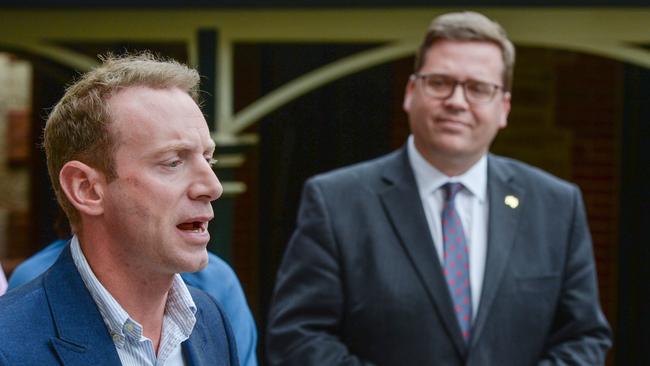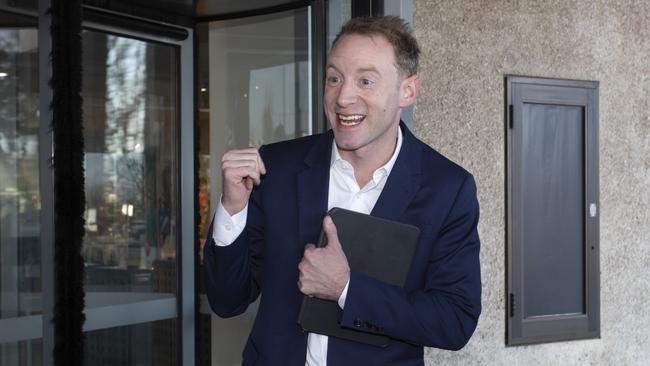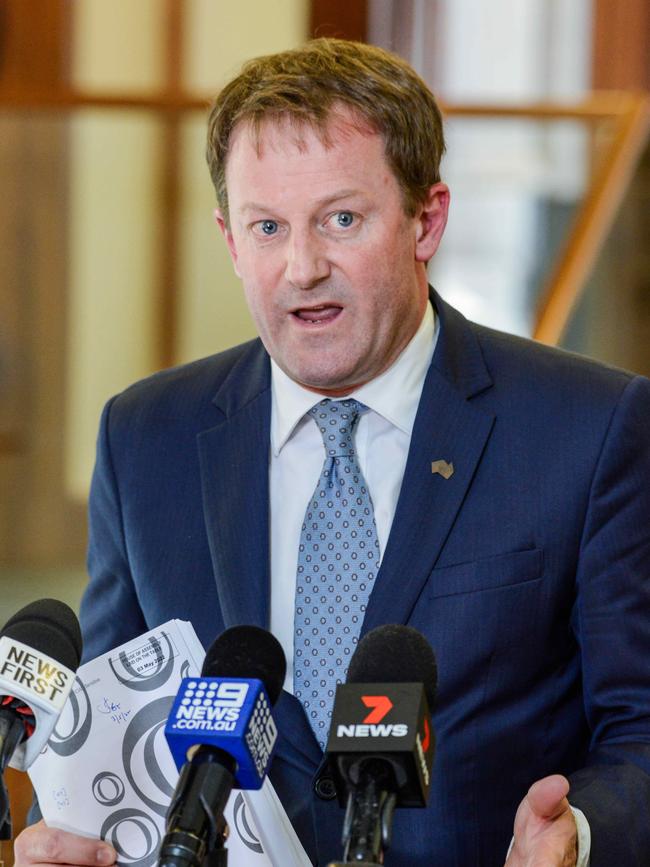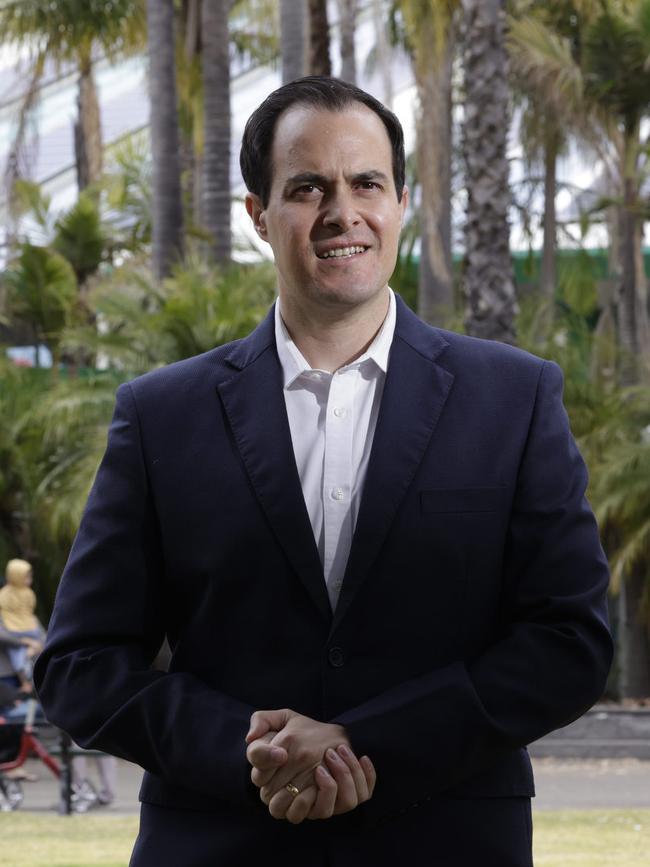Analysis: Inside David Speirs’ Liberal leadership disaster and what happens next | Paul Starick
David Speirs’ leadership started unravelling six months ago, Paul Starick writes, and it’s ended in smoking ruins.
Opinion
Don't miss out on the headlines from Opinion. Followed categories will be added to My News.
Pretty much everyone dies in a bloody gunfight after a Mexican standoff at the end of Reservoir Dogs – the 1992 Quentin Tarantino classic movie.
With astonishing prescience, a national Liberal strategist six months ago predicted the same fate for an organisation with a historically proven ability to tear itself apart.
“The SA Libs will end up like the final scene in Reservoir Dogs is my guess,” the prophetic strategist foretold back in February.
The Liberals are in smoking ruins. Outgoing leader David Speirs declared he’d “had a gutful” and lacked the energy to fight on as he quit suddenly on Thursday afternoon.
There is no clear favourite to replace him, even though deputy leader and Moderate factional chieftain John Gardner is canvassing for support ahead of a ballot scheduled for Monday morning.

Vincent Tarzia and Josh Teague, both speakers and ministers in the Marshall government, also are contenders but neither have strong support from either the Moderate or rival Right faction.
Whoever wins is likely to be a stopgap leader, aiming to avert a wipe-out at the next election, on March 21, 2026.
Senior Liberals are accusing Mr Speirs of fatal character flaws that cruelled his leadership from the start and left him unable to withstand being undermined by a few disgruntled colleagues.
“Part of Speirs’ problem throughout his whole career is a very hot and cold nature. He was too often in an unhappy mood with media or colleagues and refusing to engage in ways that you need to be able to to nip that in the bud,” one Liberal said.
Even as Environment Minister, Mr Speirs was said to have unexpectedly pulled out of scheduled press conferences, leaving the-then Premier Steven Marshall to front the cameras.

The disastrous loss of Mr Marshall’s inner-eastern seat of Dunstan at a March 23 by-election was a crucial turning point.
Mr Speirs is said to have believed the Right faction, which has seized control of the party machinery, cruelled the Liberals’ chances by triggering an internal firestorm the week before, when former federal cabinet minister Anne Ruston was deposed from top spot on the Liberal Senate ticket by firebrand conservative rival Alex Antic.
“That was when he (Mr Speirs) started to believe the Right were not interested in winning elections – they were simply looking after themselves,” a Liberal said.
By May, though, senior Liberals were disgruntled with Mr Speirs. Some were dismayed by his plans to skip the June 6 state budget to attend a cousin’s wedding in Scotland. Others were appalled by his failure to deliver internal reforms promised after the Dunstan loss.


Mr Gardner began counselling Mr Speirs, asking if he needed more support as leader or whether he wanted to go on, particularly after The Advertiser in late July revealed Mr Speirs had been forced to cancel plans to attend another family wedding in Scotland.
Right factional chieftains, lacking the numbers in parliament to control a leadership ballot, signalled their disinterest, declaring any leadership switch was in the hands of the Moderates.
All sides reject speculation that a delegation spearheaded by Mr Gardner confronted Mr Speirs and forced his hand, saying the decision to suddenly quit was his own.
“He didn’t march in Malinauskas-style and say: ‘Time’s up mate’,” one senior Liberal said, referring to the then-union boss Peter Malinauskas in 2011 knifing then-premier Mike Rann.
In the end, Mr Speirs exploded his own leadership, laying bare his distaste for the hunger, discipline and ruthlessness required to lead a major political party.
The unofficial campaign for the 2026 election starts in just seven months – a year out from the poll.
Things can change quickly in politics but the Liberals are starting from a long, long way back.





